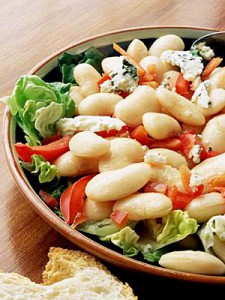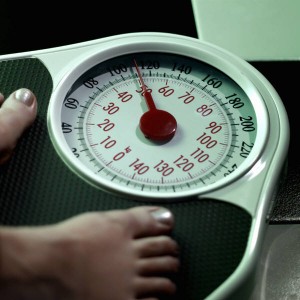 What happens after I lose all my weight?
What happens after I lose all my weight?
The key to keeping weight off after a diet is incorporating habits of sound nutrition, regular exercise, and reasonable expectations that you can stick to for a lifetime. These lifestyle changes are an investment in your future.
Watch Calories the Right Way
Studies show that restrictive diets requiring careful calorie counting don’t work over the long haul. Strict calorie counting is not sustainable. For a woman, you can count calories by making sure your meat or fish portion fits in the palm of your hand — about 3 ounces. For a man, think in terms of the size of your credit card. Now double that portion with a vegetable, and fill the remaining part of the plate with a whole-grain food. Calories do count, but you need to go beyond the numbers and start thinking in terms of calorie quality.
Control Your Carbs
Keep carbohydrates to a minimum because spiking your blood sugar with something innocent-seeming such as a baked potato can cause a rise in insulin, a hormone that causes your body to store fat. If you are running on sugar, you will be hungry all day. But on a lower carbohydrate diet, you will be burning fat so you won’t be hungry between meals.
Downsize Your Portions
Plate sizes have increased by as much as 20 percent over the years. The natural tendency is to fill up these bigger plates with food and then to clean off your plate. That means more calories per meal. Smaller portions are key to weight management, Try using smaller plates or cups — or leave part of the dish empty.
Learn About Proteins, Minerals, and Vitamins
Proteins, like chicken, fish, and egg, can help you avoid cravings. Minerals can aid in the metabolism of carbohydrates, fats, and protein. Vitamins also play a role. Niacin, for example, helps maintain muscle mass; vitamin B6 maintains blood glucose levels, minimizing sugar cravings. The bottom line? Eat protein foods, balancing them throughout the day.
Don’t Forget Dairy
The American Dietetic Association suggests including dairy foods in your diet for weight management. According to the National Dairy Council, three servings of milk, cheese, or yogurt a day can help you lose weight and burn fat. Low-fat or non-fat dairy products are an important source of the vitamin D that Americans are short on and are rich in calcium.
Weigh the Facts About Weighing Yourself
Frequently checking your weight can be motivating for some people, but discouraging for others. Although hopping on the scale regularly can help you make sure the weight you lost isn’t creeping back, be aware that weight fluctuates daily, even hourly. Or consider the “tight pants test.”
You know when you’re gaining weight by the way your clothes feel. If you feel comfortable in your clothes, your weight management plan is probably working.
Start a Food Diary
Keep a daily food log. You would be surprised at how easy it is to forget how much you have eaten in one day! Just jot down the foods and, if possible, the approximate calorie count. According to the National Heart, Lung, and Blood Institute Obesity Education Initiative, keeping a food diary and an activity diary is one of the best ways to help both weight loss and weight management. You can include your diet, your daily exercise, and your weight goals.
Keep a Healthy Attitude
Staying positive and motivated is an important part of weight management. For some people, motivation may come from a health issue; for others just looking good might be enough. “To keep weight off after a diet, make peace with your food and your body. A great deal of weight gain is due to stress, and exercise releases stress and improves mood. Get sufficient sleep to regulate your hormones. Eat balanced meals. But most of all, don’t become obsessed with your weight. You will feel lighter if you release your resentment and see yourself as fit and beautiful.











